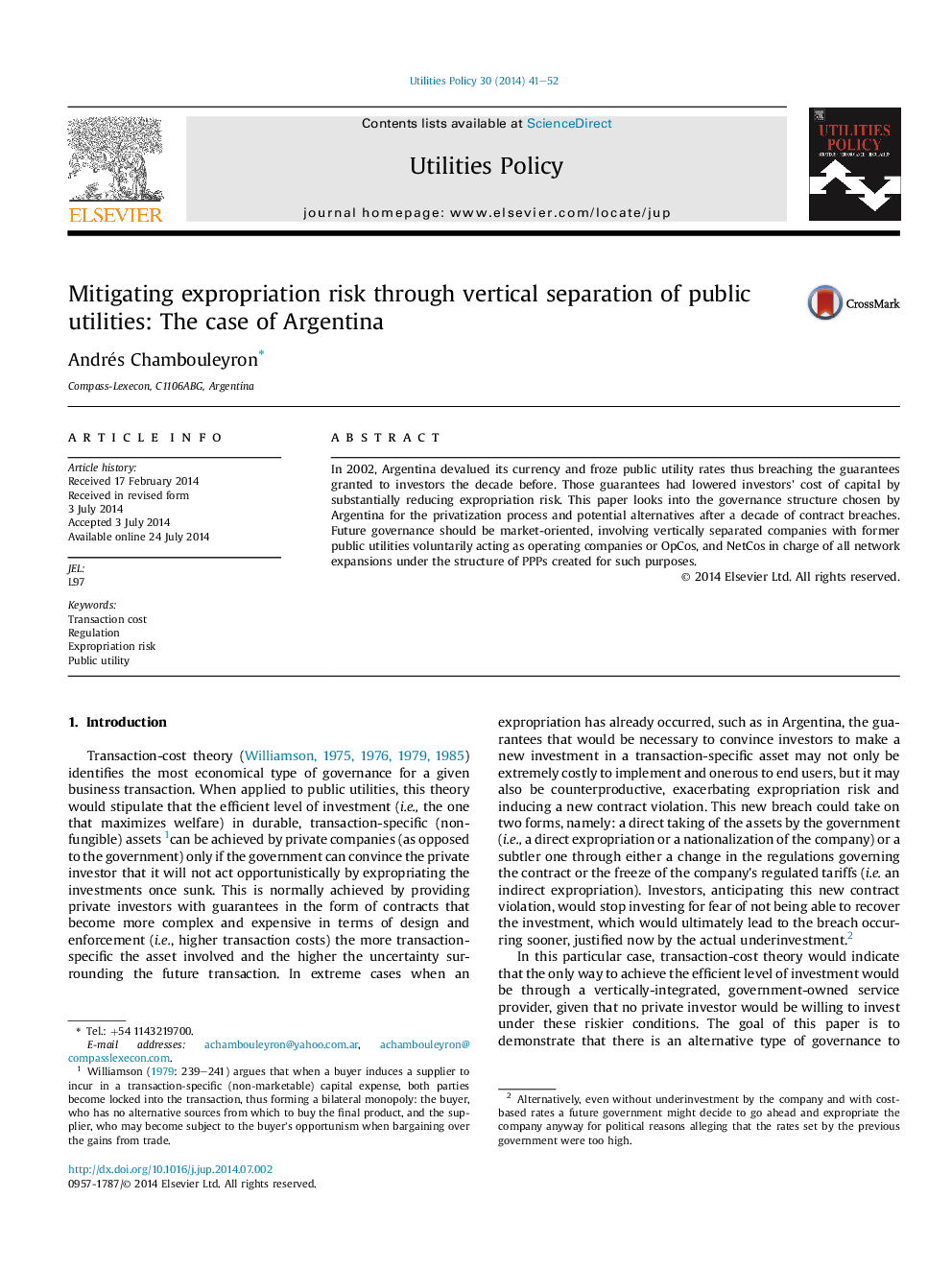| Article ID | Journal | Published Year | Pages | File Type |
|---|---|---|---|---|
| 999143 | Utilities Policy | 2014 | 12 Pages |
•Emergency Law of 2002 breached guarantees to foreign investors in Argentina.•The companies' cost of capital increased as a risk premium was incorporated.•Optimal tariffs would now further increase the risk of a future expropriation.•New governance with OpCos providing retail services and NetCos network investment.•I provide examples in Argentina where such a mechanism has already worked.
In 2002, Argentina devalued its currency and froze public utility rates thus breaching the guarantees granted to investors the decade before. Those guarantees had lowered investors' cost of capital by substantially reducing expropriation risk. This paper looks into the governance structure chosen by Argentina for the privatization process and potential alternatives after a decade of contract breaches. Future governance should be market-oriented, involving vertically separated companies with former public utilities voluntarily acting as operating companies or OpCos, and NetCos in charge of all network expansions under the structure of PPPs created for such purposes.
